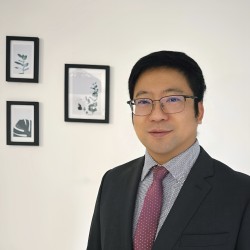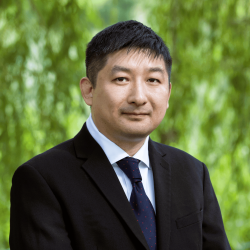System digital twin for sustainable olive mill waste upcycling
We are offering a fully funded PhD studentship for both home and international candidates interested in system integration and modelling, digital twins, multivariable and multi-objective optimisation, and model predictive control, focused on developing a smart zero-emission biorefinery system for converting olive mill waste into value-added products.
Start date
1 January 2026Duration
36 monthsApplication deadline
Funding source
EU HorizonFunding information
This studentship will cover the tuition fee and a tax-free stipend for three years. Stipend at UKRI rates for 2025-26 is £20,780. The qualified candidate will also be supported to attend professional trainings and domestic/international conferences.
About
OLinWASTE is our recently funded €4 million EU Horizon project, involving 10 consortium partners from 6 European countries. The project aims to revolutionise the biorefinery sector by pioneering an integrated zero-emission system and setting a new benchmark for sustainable innovation. This project will upcycle underutilised olive mill waste (OMW) into high-value products, including plant bioimmunostimulants, biopesticides, biofertilisers, biobased plastics, and bioenergy. Key focuses include reducing greenhouse gas emissions, optimising exhaust flows, minimising noise, recovering thermal energy, and reducing odours from pomace and digestate.
The project comprises seven work packages. As a leading partner, the University of Surrey will develop a system digital twin (SDT) to enhance overall sustainability, efficiency, and the optimisation of material, energy, and waste flows. The main tasks include: 1. Developing Digital Twins: Using data from other work packages, we will create digital twins (DTs) for waste treatment processes through advanced machine learning, validated against physics-based models and experimental data. 2. System Integration: Integrating the DTs into material and energy balance equations to develop an SDT that simulates real-time system operation in a dynamic virtual environment. 3. Online Implementation: Deploying the SDT on an evolving online platform, continuously updated with new data and novel multi-objective optimisation algorithms, to evaluate metrics such as material circularity, system efficiency, cost, and carbon footprint.
The University of Surrey is ranked 12th in the UK in the 2025 Complete University Guide and was awarded The University of the Year for Graduate Employment in 2021. The Surrey Circular Economy group and the main supervisor Dr Lei Xing has built strong track record in circular chemical economy, green energy, carbon capture and utilisation, AI and digitalisation.
Eligibility criteria
Open to any UK or international candidates.
By the start of the PhD programme, applicants must be awarded a master’s degree in any of the following disciplines: Chemical Engineering, Physics, Mechanical Engineering, Energy Engineering, Environmental Engineering, Computer Science, or other related disciplines. Applicants with track records or experience in system modelling, machine learning and control are highly desirable.
How to apply
Applications should be submitted via the PhD Chemical and Process Engineering Research programme page.
In place of a research proposal you should upload a document stating the title of the project that you wish to apply for and the name of the relevant supervisor.
Studentship FAQs
Read our studentship FAQs to find out more about applying and funding.
Application deadline
Contact details

Studentships at Surrey
We have a wide range of studentship opportunities available.

